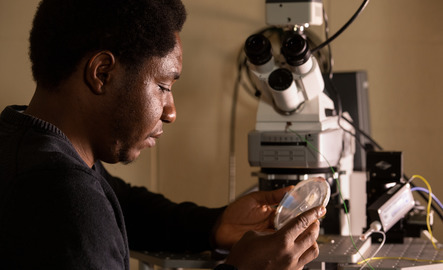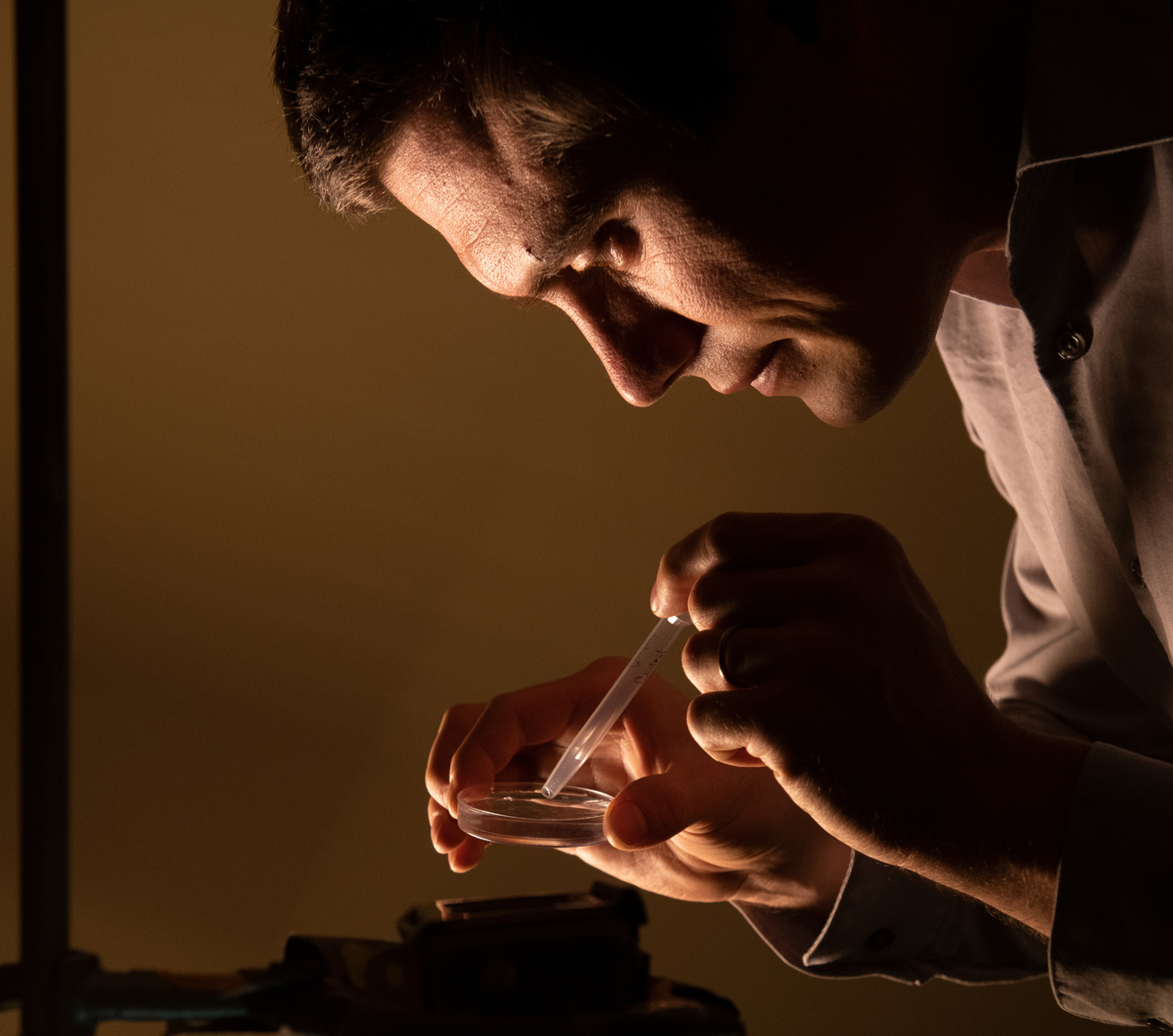Learn More About UW’s Zoology and Physiology Graduate Programs
The Department of Zoology and Physiology's graduate programs offer a diverse exploration of zoology, physiology and various
biosciences disciplines, encompassing studies from molecular levels to ecosystem dynamics.
Students engage in immersive field training covering physiology, ecology, evolution,
fisheries and wildlife conservation.
Ph.D. Admission Requirements
Applicants are expected to demonstrate a strong foundation in biological sciences,
with at least 20 semester hours of undergraduate coursework in zoology, physiology
or related fields. Additionally, a solid background in other scientific disciplines
is valued, but not required. We welcome applicants from diverse academic backgrounds,
fostering an interdisciplinary approach to research and learning.
Graduation Requirements
Students are required to complete either a thesis (M.S.) or dissertation (Ph.D.) project as part of their degree program. Assessment milestones include the submission of a research proposal and comprehensive examinations.

What Can You Do With a Zoology and Physiology Graduate Degree?
A graduate degree in zoology and physiology prepares you for careers in research, healthcare, conservation and education. You’ll gain advanced knowledge of animal biology and physiology while developing research skills that can lead to opportunities in wildlife management, biotechnology, environmental policy or lab-based research. Many graduates go on to pursue Ph.D. programs or professional schools in medicine, veterinary medicine or physical therapy. Whether you're interested in fieldwork, lab work or health-related careers, this degree provides a strong foundation for your next step.
Here's a sampling of some of the jobs and careers you can pursue:
- Environmental Scientist
- Conservationist
- Zookeeper
- Laboratory/Research Assistant
- Environmental Education Officer
- Animal Nutritionist
- Environmental Consultant
- Toxicologist
- Wildlife or Fisheries Biologist
- Habitat Specialist
- Research Biologist
Here are some of the places that our graduates are currently employed:
- University of Arizona
- Virginia Tech
- Yale School of Forestry and Environmental Studies
- University of Wisconsin Madison
- University of Wyoming
- Wyoming Game and Fish Department
- Idaho Department of Fish and Game
- Western EcoSystems Technology Inc. (WEST, Inc.)
- The Nature Conservancy
- U.S. Fish and Wildlife Service (USGS)
- U.S. Department of Agriculture (USDA)
If you already have a bachelor's degree in zoology, biology or a related field, pursuing a graduate degree is the next step toward becoming a zoologist. You're in the right place! A master’s or Ph.D. in Zoology and Physiology allows you to deepen your expertise, conduct original research and specialize in areas like animal behavior, ecology, physiology or conservation biology. Graduate study prepares you for advanced roles in research, wildlife management, environmental consulting, government agencies or academia—equipping you with the skills and experience to make a meaningful impact in the field.
Deciding between an M.S. and Ph.D. in zoology and physiology depends on your career goals and interest in research. An M.S. is ideal if you’re looking to build specialized knowledge, gain research experience and pursue careers in wildlife management, environmental consulting or lab work. A Ph.D. is the better path if you’re aiming for a career in academia, lead research positions or high-level roles in government or industry. If you're unsure, starting with a master's can help clarify your interests and determine whether a doctoral program is the right fit.
Where Research Meets Real-World Impact
Discover how science informs conservation in this short video featuring Gary Beauvais, Director of the Wyoming Natural Diversity Database (WYNDD). As a research and service unit of the University of Wyoming, WYNDD plays a vital role in collecting and developing biological data on species of conservation concern and natural vegetation communities. With a focus on botany, vertebrate and invertebrate zoology and ecology, WYNDD helps bridge the gap between research and real-world habitat management. For graduate students in zoology and physiology, it offers meaningful opportunities to contribute to conservation through data-driven science.


